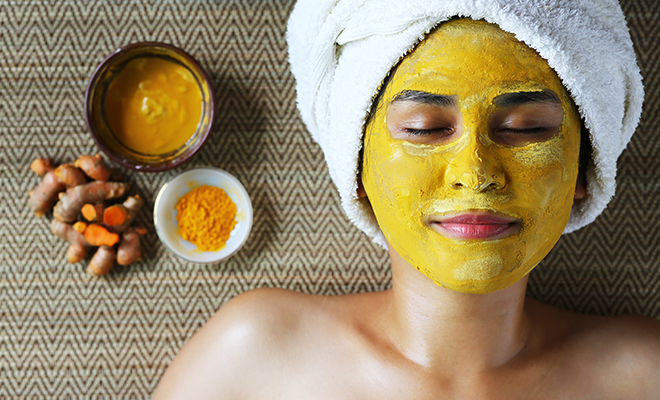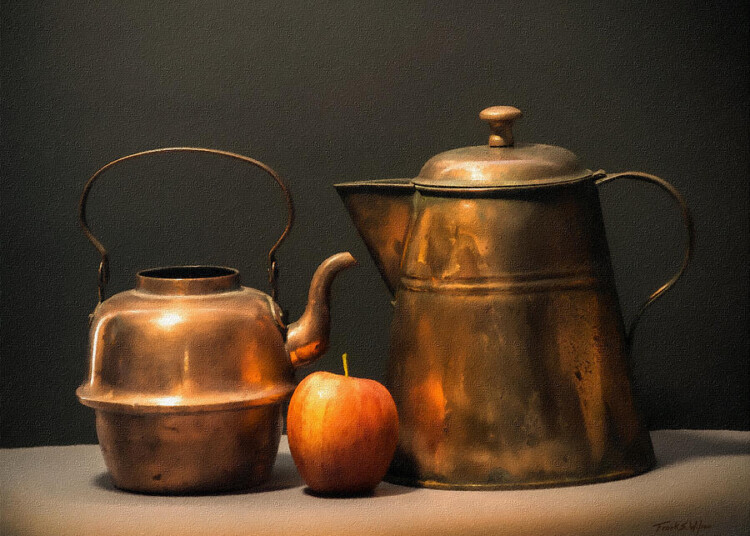Hollywood starlet Demi Moore once said, “I’m a big believer in that if you focus on good skincare, you really won’t need a lot of make-up.” The writer couldn’t help but agree with the actress, applying too much make-up is certainly a ‘no no’ as it not only makes you look unnatural but also causes further damage to your skin.
Commercialised beauty and make-up products come with a temptation many women cannot resist. I mean, who wouldn’t want to look their best? What more when you walk into a beauty, wellness store or pharmacy and first notice the array of beauty, make-up and skin care products staring right back at you.
Your typical reaction is to check out the product, especially if it’s new in the market. While you’re looking through the product, a beauty consultant approaches you, telling you more about the product and soon enough you are convinced. You leave satisfied with your new purchase. But months down the road, you’ve realised the product is not quite working for you. What do you do? There is no guarantee a product may work for you. I’m not suggesting that beauty products are bad. The success of any product varies from one person to another, of course depending on one’s skin type.
Little do we know that there are many home and traditional remedies you can consider in order to achieve that healthy, glowing and flawless look. Indian remedies have worked for generations, wonder why our grandmothers always had beautiful skin? Well here’s their secret, be inspired as you check out these remedies.
Neem Leaves
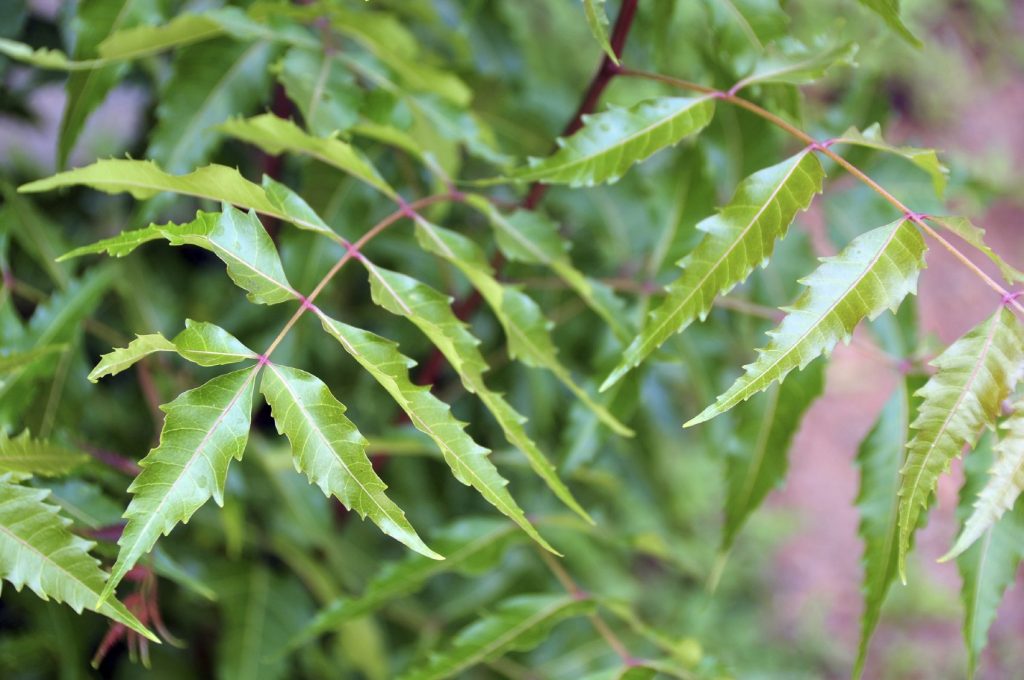
Neem leaves are a godsend ingredient and a safe home remedy for oily and acne-prone skin. They help keep skin free from pimple-causing bacteria and thus reduce acne. Neem oil extracted from neem leaves is a cooling, drying, and non-comedogenic oil that you can use to tap excess oil from the face and keep it clean and oil-free.
You can use undiluted neem oil as a spot treatment to fight acne. To use it as a face oil, dilute a few drops in water or any oil such as olive oil and apply it on your face every night before going to bed for clear and smooth skin.
If you thought neem leaves are only suitable for oily and acne-prone skin, you will be glad to know that one of the benefits of neem leaves is that it moisturises dry skin. Neem leaves are essentially rich in fatty acids and vitamin E and known to be nourishing for the skin.
Neem leaves are natural moisturisers that combat dryness and make your skin soft and supple. They restore lost moisture and reduce flakiness and extreme dryness. Plus, they also help in improving the texture of your skin, leaving it with a healthy glow. Use neem oil every night before bed for smooth and hydrated skin.
If you have sensitive skin and get skin irritations easily, you need to make space for some homemade neem face packs on your beauty shelf. Neem leaves have anti-inflammatory properties, high content of fatty acids, and glycerides which help soothe irritated and itchy skin.
Not only that, but they can also heal serious skin issues like eczema which makes your skin red, dry, and flaky. You can use neem oil every day before bed or make a paste of neem leaves and apply it on your face twice a week for 15 minutes to relieve the skin of any irritation.
Multani Mitti
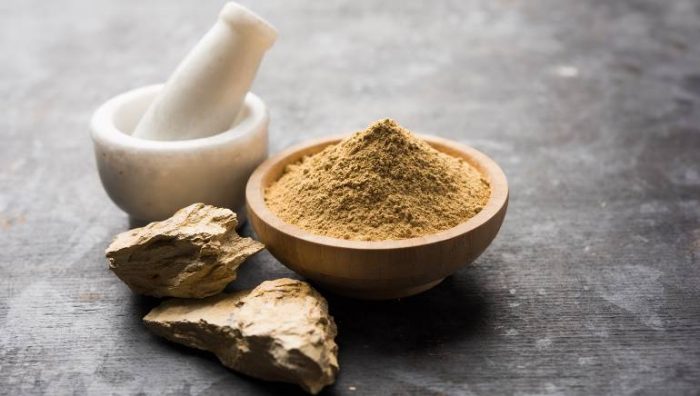
Multani mitti has been used to get rid of skin issues and achieve radiant, blemish-free skin for ages in India. It is one of those age-old tips that has been handed over generations.
Multani mitti is a great agent to clean, exfoliate, and nourish your skin. It has active elements that effectively absorb oil, dirt, sweat, and impurities, leaving the skin clean, soft, and supple. One of the best things about the ingredient is that you can use it with a host of other ingredients to suit your skin type and achieve desirable results.
Those with dry skin types can make use of Multani mitti as a cleanser to flush out impurities from the pores. To prevent the clay from drying out the skin, you can add a moisturising ingredient like honey, milk, or cream to keep the skin hydrated.
Multani mitti clears your skin of pimple-causing bacteria. It also controls the production of sebum or oil, preventing it from clogging the pores and causing acne. Adding acidic ingredients like tomato further controls the appearance of oil. Tomatoes also help fade acne scars.
It can help you fight acne, blackheads, and whiteheads. Many studies have proven that Multani mitti possesses anti-inflammatory properties that can work well on any inflammation on your skin such as that caused by acne.
Poolankilangu
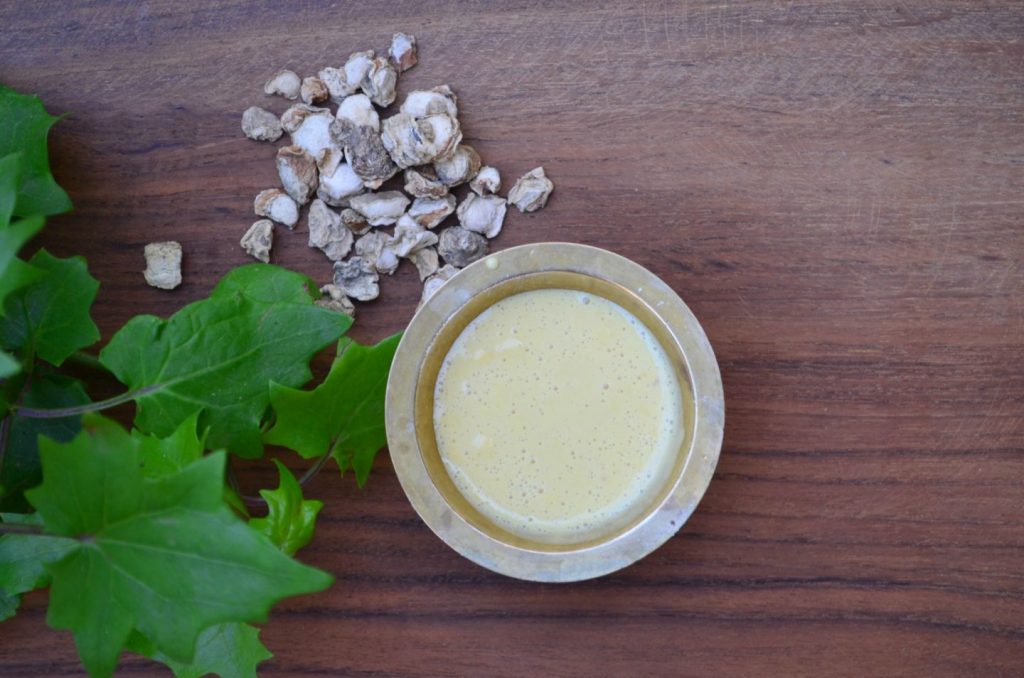
White turmeric (Poolankilangu) is a rhizome and a close relative to our regular turmeric. The rhizome has thin brownish skin and a firm white interior. Poolankilangu is very fragrant and was used as an aromatic spice from ancient times. But now it is mostly replaced by our regular ginger. Poolankilangu plant is a perennial herb that is mostly found in tropical countries like India, Japan, and Thailand. The flowers are pink and white in colour. In India, it is mainly used for external applications and rarely in cooking. In cooking, it is mainly used for making pickles. In some countries like Thailand, it is used in curries and salads.
Poolankilangu is amazing for skincare and also heals almost all skin problems. For minor wounds and scrapes, just apply white turmeric poultice. For acne, experiment by using the white turmeric face pack daily for a few days and see the difference.
Thayiru
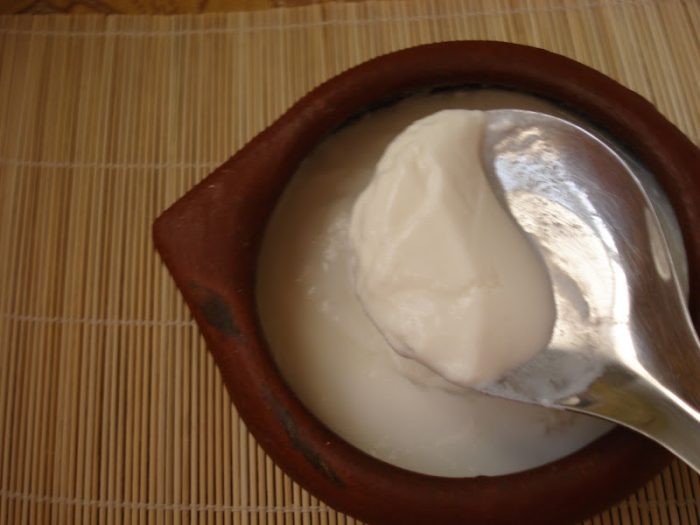
Curd or called thayiru in Tamil is an excellent source of calcium, protein, and various essential vitamins. It is packed with the goodness of vitamin D which can benefit your skin. The lactic acid present in the curd helps in shedding dead cells from the skin and also fights against wrinkles and early signs of ageing. Apart from this, lactic acid also helps moisturise the skin leaving it soft and supple. It also prevents acne breakouts, reduces redness from the skin and also aids in removing tanning.
If you feel that you’ve lost moisture from your skin, curd can come to your rescue as it acts as an excellent moisturiser. Applying curd every day to your face can help you achieve soft, nourished, and supple skin.
When the UV rays come in contact with our skin, they affect the body cells and make them look dull and tanned. Hence, sometimes severe sunburn can even lead to rashes and blisters. Applying curd on the affected areas can help you get some relief. This is because yogurt is rich in zinc and has anti-inflammatory properties.
To get rid of those dark circles, take some fresh curd and apply beneath your eyes and allow it to stay for 10 minutes. Once it is done, rinse off your eyes with cold water. Repeat this method every day and watch out for the best results.
Aloe Vera
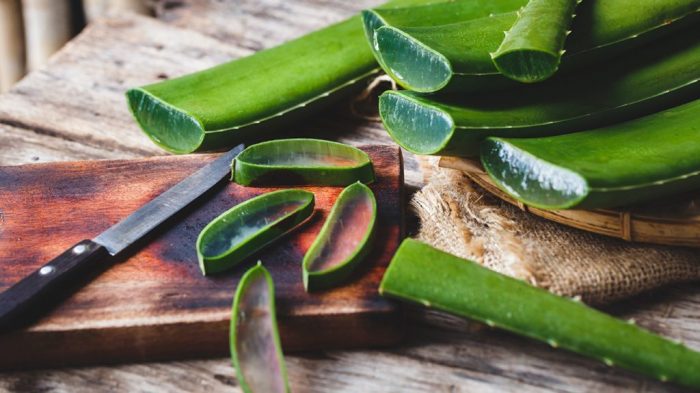
Aloe vera is perhaps one of the most widely used herbal remedies for topical skin conditions. This is because the gel-like components of the plant are known to heal the skin from a variety of minor ailments.
Despite its healing powers, you may be wondering if it’s safe for facial use. Generally speaking, the answer is yes. When used correctly, aloe vera can help with a variety of ailments that might affect your skin.
Aloe vera gel absorbs easily, making it ideal for oily skin. However, it can help treat dry skin, too. Consider swapping out your regular moisturiser for aloe vera after bathing to help seal moisture into your skin.
Aloe vera helps your skin in retaining its moisture and gives back its radiance. Not only does it reduce visible wrinkles and fine lines on the face, but it also prevents premature ageing of the skin by improving the elasticity of the skin and repairing skin cells.
Hope you will find this information useful. Happy experimenting!
Follow us on Instagram, Facebook or Telegram for more updates and breaking news.


